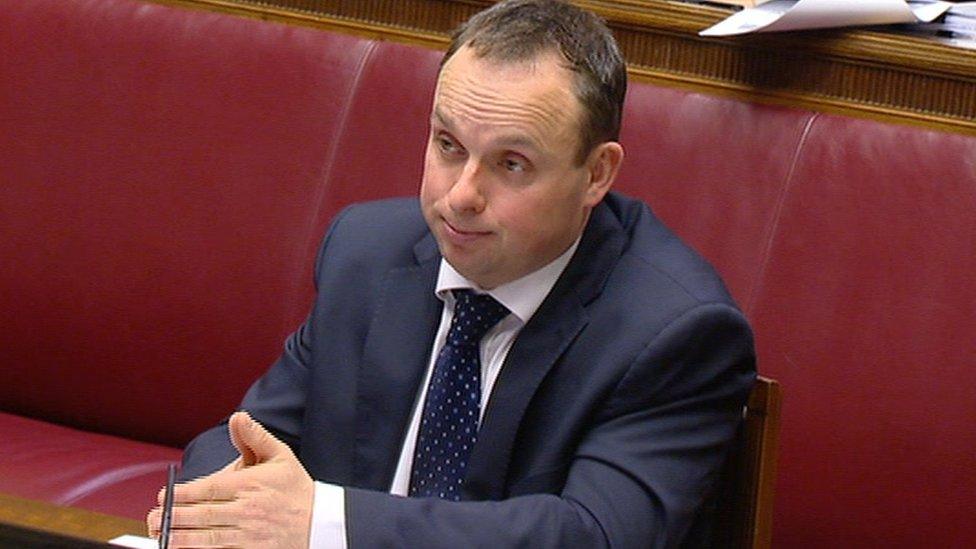RHI inquiry: 'Panic time' when green scheme spike emerged
- Published
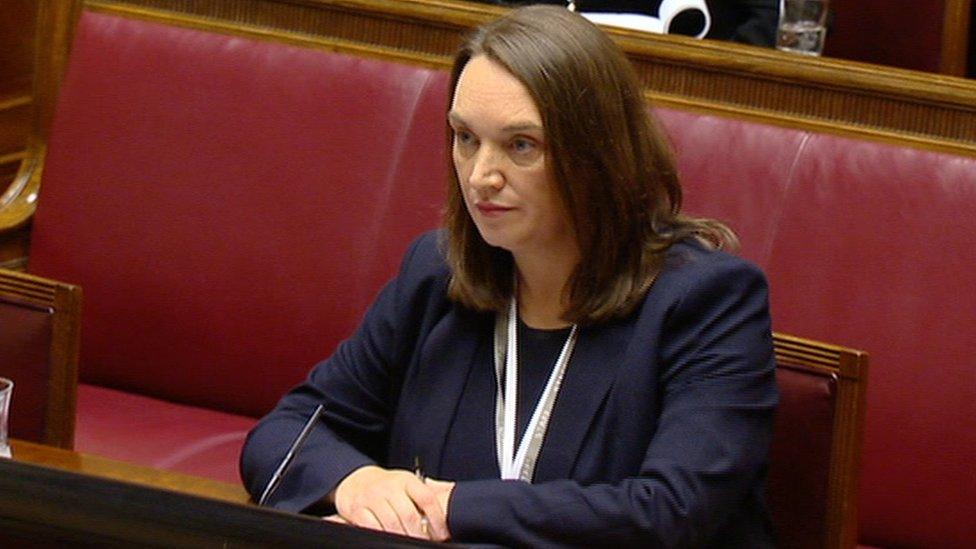
Emer Morelli said officials in the finance department should have taken more care to establish how the RHI scheme's budget worked
It was "panic time" in Stormont's finance department when it learned of a massive spike in applications to NI's flawed green energy scheme , a senior civil servant has said.
Emer Morelli was appearing at the Renewable Heat Incentive (RHI) inquiry.
She is a finance official who was involved with the scheme's budget.
It was set up in 2012 to encourage uptake of eco-friendly heat systems, but large subsidies left NI taxpayers with a £490m bill.
Its failings led to the establishment of a public inquiry in January 2017.
Ms Morelli first appeared to give evidence to the inquiry at the end of June, when she said finance officials should have taken more care to establish how the RHI budget worked.
She had been involved in approvals for the scheme's budget when it was first created.
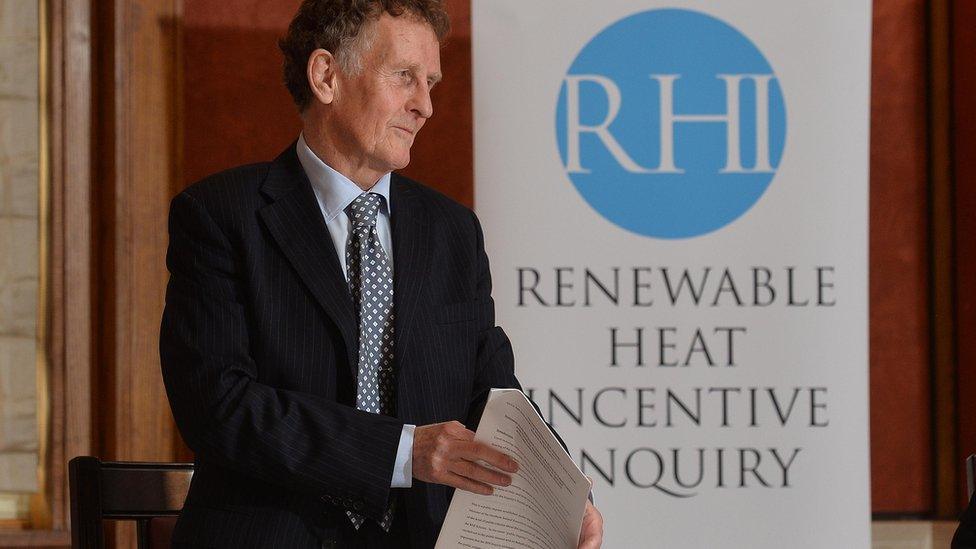
The RHI inquiry is being chaired by retired Court of Appeal judge Sir Patrick Coghlin
On Tuesday, she was back to answer questions about the finance department's role when difficulties became apparent with the RHI scheme in summer 2015.
A subsequent business case, put forward by enterprise officials for approval, included details of the department's proposal to introduce cost controls so future applicants to the scheme would not receive overgenerous subsidy payments, as well as a request for additional funding.
The finance department only received the business case in October, a matter of weeks before the changes were due to be introduced.
'Red button'
The cost controls did not come into effect until November.
The inquiry has been trying to establish why there was a four-week delay, which led to a huge spike in applications and did severe damage to the public purse.
Because of the spike, enterprise officials said the scheme's projected spend had risen and there was "no choice now but to move to close" the initiative.
The finance department had approved the business case based on an estimate of £30m a year - in December 2015, Ms Morelli received a letter telling her the estimate had risen to £44.2m.
Asked for her initial reaction, Ms Morelli said it was one of "disbelief", adding that the response had clearly outweighed expectation.
"This was red button, panic time," she told the inquiry.
Earlier on Tuesday, the inquiry heard the finance department was effectively "backed into a corner" to approve more funding for the RHI scheme, at a time when the scale of its budget problems were coming into focus.
Civil servants in the enterprise department told finance officials in July 2015 that they had been spending money through the RHI scheme without the proper approval.
The inquiry has already heard that during the same period, the poultry industry was being told of the incoming changes - but the finance department did not get the business case until that October.
Ms Morelli said by the time her department received the business case, the enterprise department already seemed to be pushing ahead with its plans, despite funding approval not being signed off yet.
'Ship has sailed?'
Inquiry junior counsel Joseph Aiken suggested that things had been done the "wrong way round", and that the finance department may have been "backed into a corner" to approve the plans, as they had already become widespread knowledge to many RHI claimants.
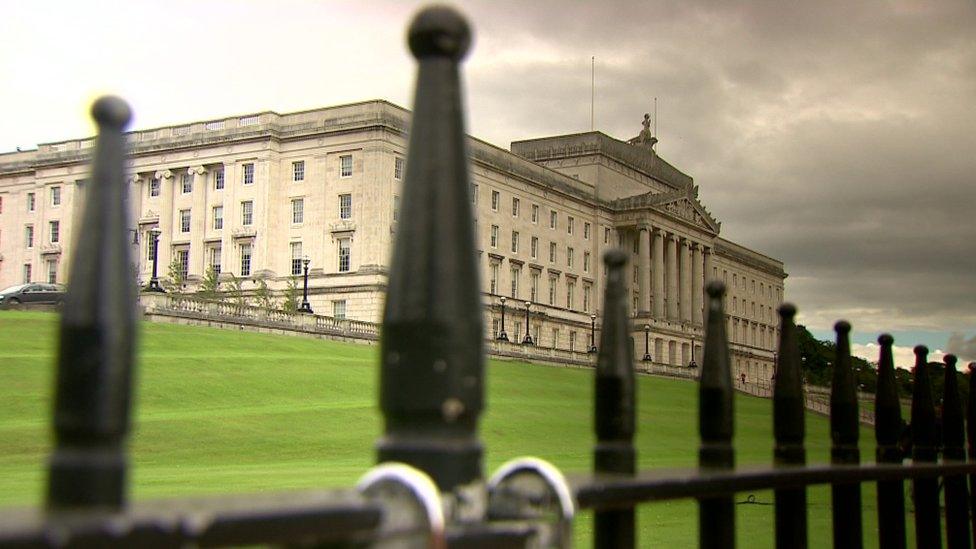
It has emerged that Stormont's enterprise department did not carry out a review of the RHI scheme in 2013, despite telling the finance department it did
Mr Aiken asked: "Intentionally or otherwise, by the time it (the business case) comes to you in October, the ship has sailed?"
"Very firmly sailed," replied Ms Morelli.
Mr Aiken said that would have left the finance department in a very difficult position of deciding whether to "blow it (the scheme) up, or let it go?"
Mr Morelli said the only option available was to approve the enterprise department's business case, because as she put it, finance officials had to determine was it better to have a scheme "with no control or some control".
"The option of blowing it up wasn't available," she added, because it would have delayed the introduction of the crucial tiered tariffs.

Hundreds of millions of pounds of public money could be wasted as a result of the RHI scheme
Earlier, the inquiry heard a meeting took place between finance and enterprise officials at the end of September 2015, to find out why the business case had not yet been submitted.
The changes - including the addition of cost controls - were due to come into effect within a matter of weeks.
Ms Morelli said the meeting marked the first time she began to realise the extent of the financial difficulties with the scheme.
'Surprise after surprise'
She said she was told by enterprise officials that the scheme had delivered value for money and that it needed to continue, in order to keep jobs in Northern Ireland.
"The information I got, I couldn't really make sense of," she said.
"It was surprise after surprise."
The inquiry was also told it took an official in Stormont's enterprise department six months to get a set of minutes for a key scrutiny meeting signed off.
There has already been evidence about the lack of minuted meetings within Stormont departments, and the slow nature of getting documents and memos approved under proper procedures.
The meeting in question took place in October 2015, but its minutes were not signed off until the following March.
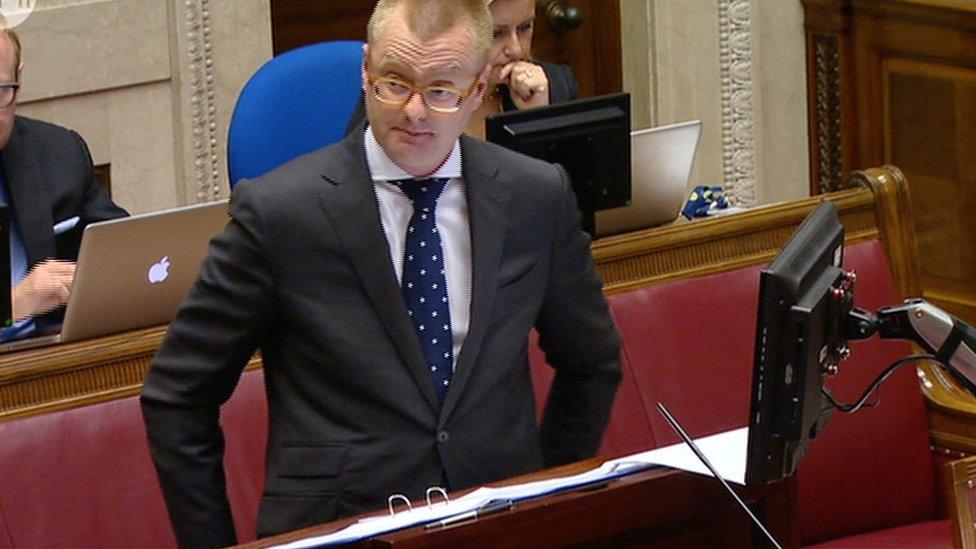
The inquiry heard details from barrister Joseph Aiken that minutes of a key meeting about RHI took six months to be signed off
Mr Aiken suggested the inquiry panel could recommend instituting a time limit for minutes to be completed, when it comes to drawing up its findings later this year.
On Tuesday afternoon, the inquiry heard the business case the enterprise department had drawn up for changes to the RHI scheme in autumn 2015 contained some statements that were not factually correct.
It said that a review of the scheme to "improve (its) performance" had happened in October 2013, and that approval under EU state aid rules had been secured - but the inquiry was told neither of those statements were true.
Ms Morelli also conceded that she should have been "more proactive" in trying to gain an understanding how the scheme's budget worked.
She said even as discussions were taking place with enterprise officials about securing more funding, there were "no alarm bells" ringing with her because the department gave her no indication that "this was a scheme that was out of financial control".
The inquiry heard Ms Morelli was, however, one of a handful of witnesses who took notes during meetings that were of use to the inquiry.
She was asked by inquiry panellist Dame Una O'Brien whether she felt the finance department carried the "authority it needs, to ensure taxpayers' money is well looked after".
Ms Morelli said that before the RHI scandal, she would have had "no hesitation" in saying it did.
But on reflection now, she said it appeared that from some of the inter-department communications, "that isn't the way it's viewed".
On Wednesday, former top civil servant at the enterprise department - permanent secretary Andrew McCormick - will return for a further two days of questioning.
The oral sessions are expected to finish at the end of October.
- Published25 September 2018
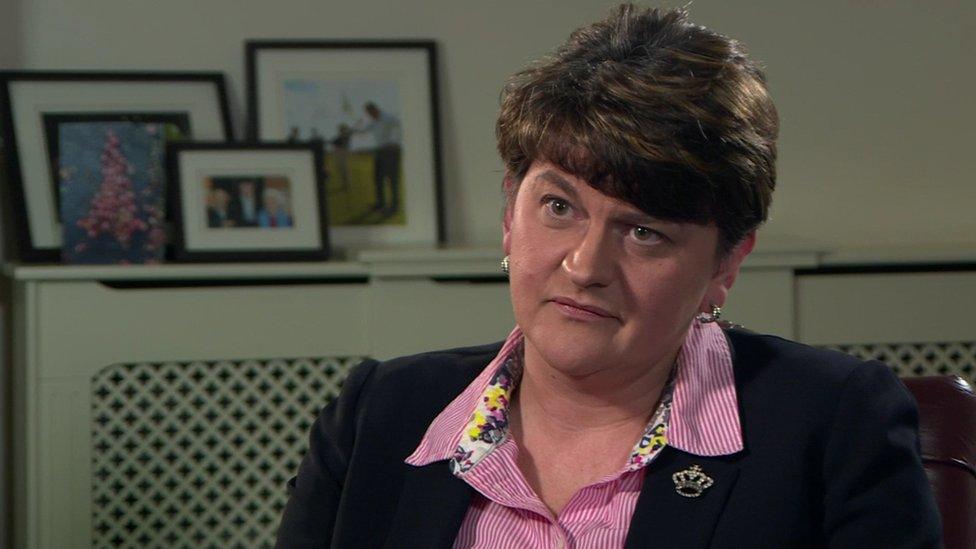
- Published21 September 2018
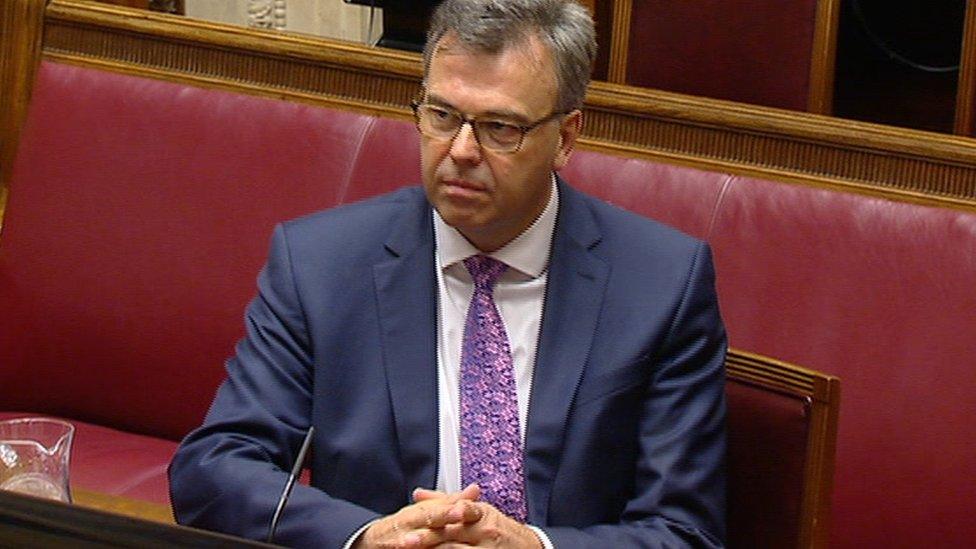
- Published20 September 2018
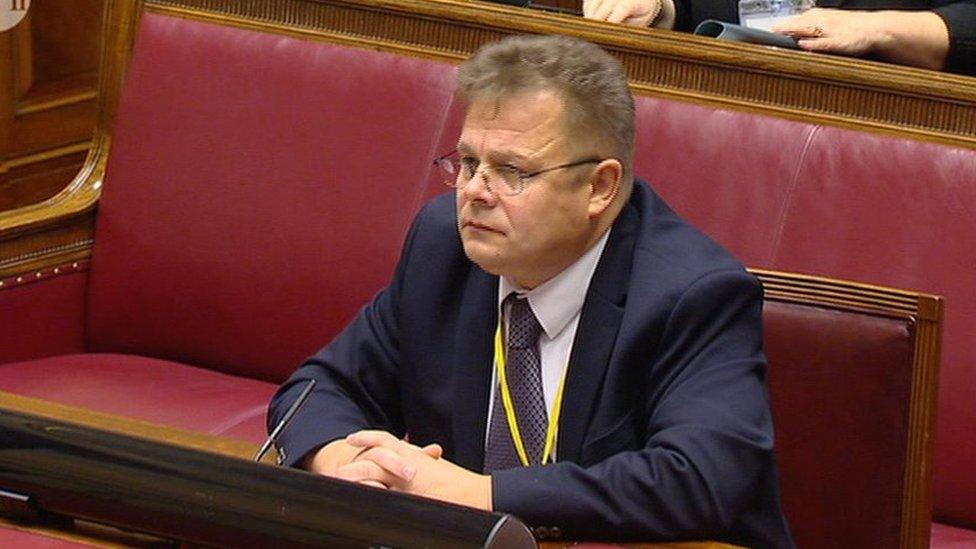
- Published14 September 2018
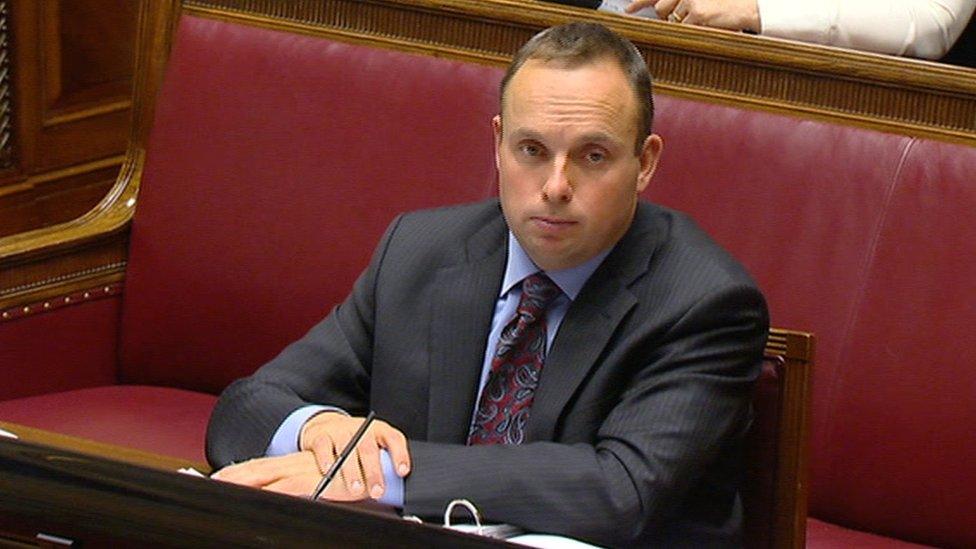
- Published13 September 2018
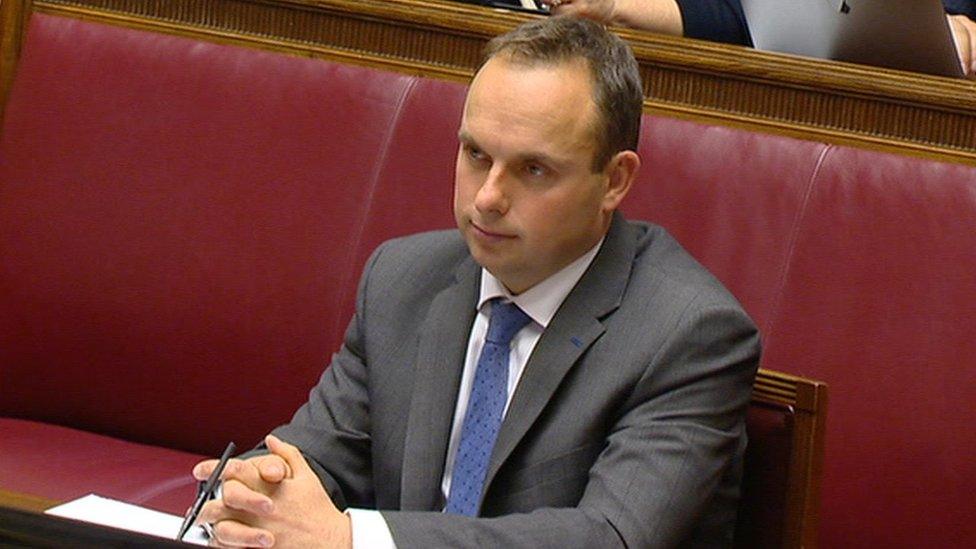
- Published12 September 2018
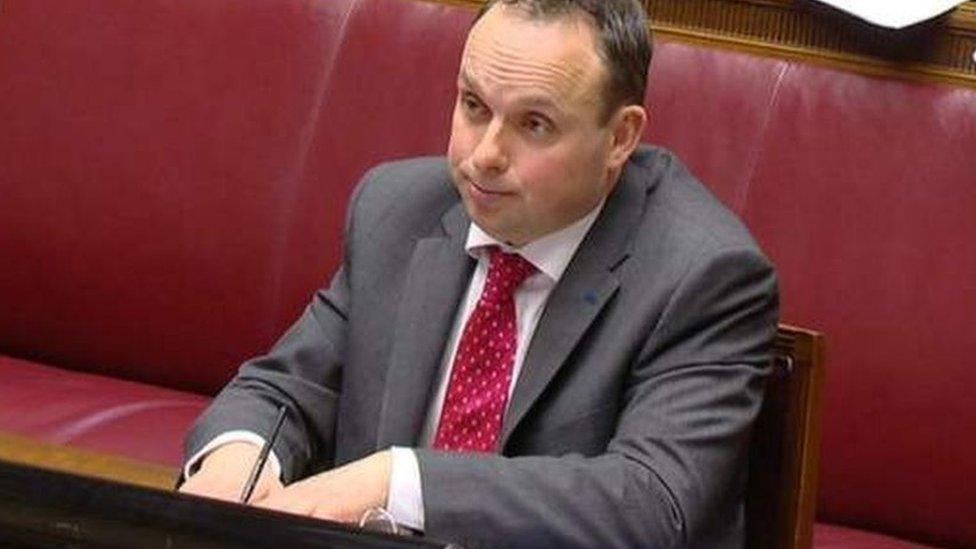
- Published11 April 2018
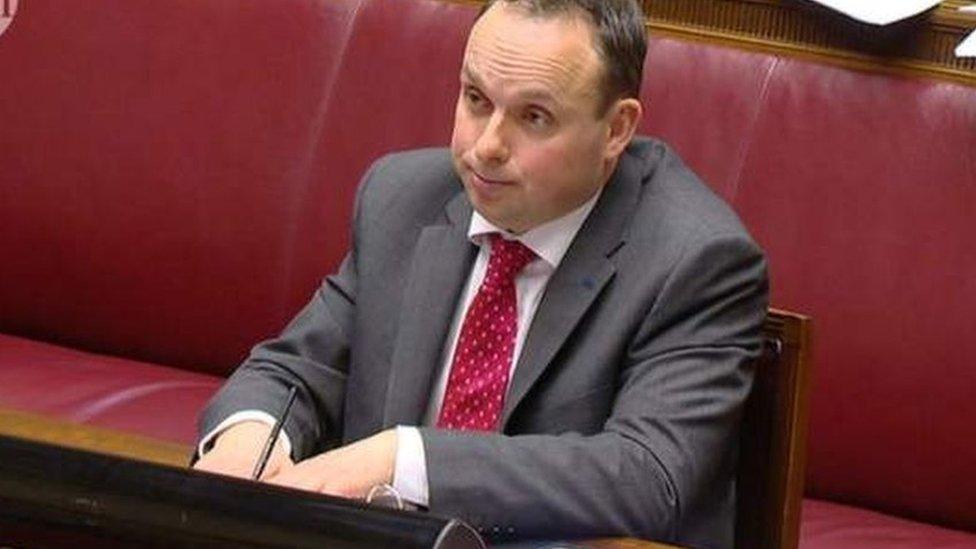
- Published11 September 2018
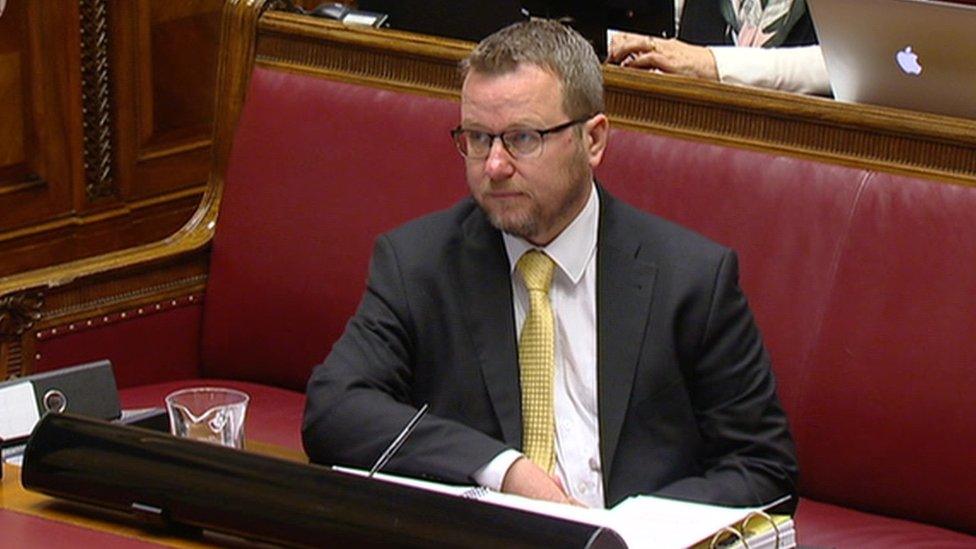
- Published11 September 2018
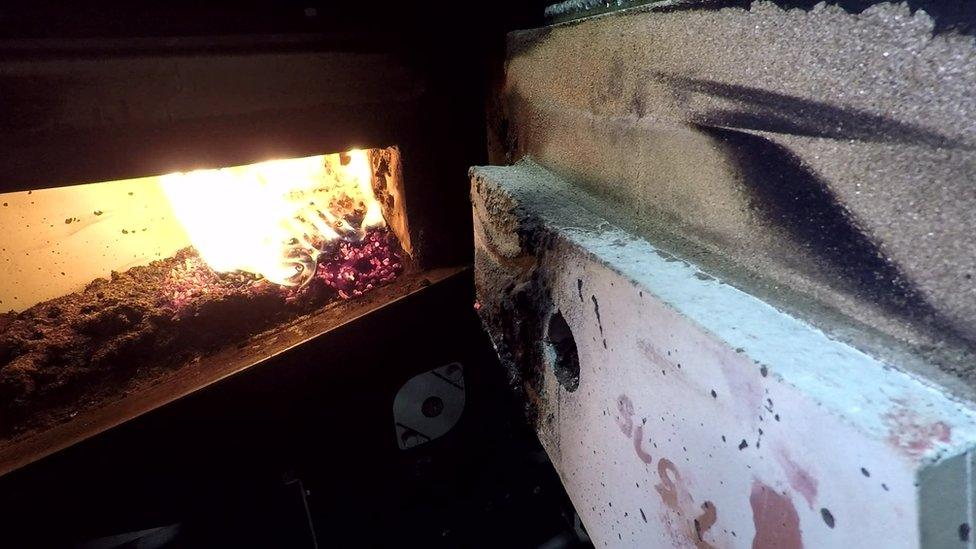
- Published7 September 2018
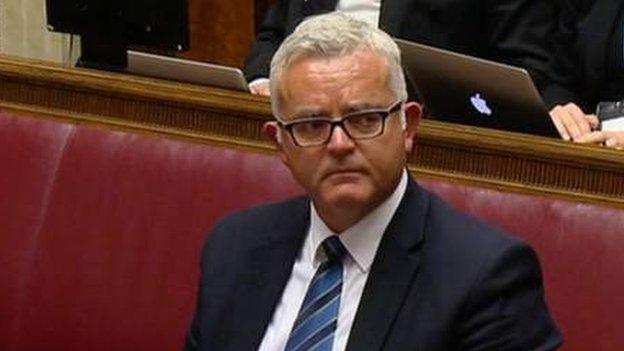
- Published7 September 2018
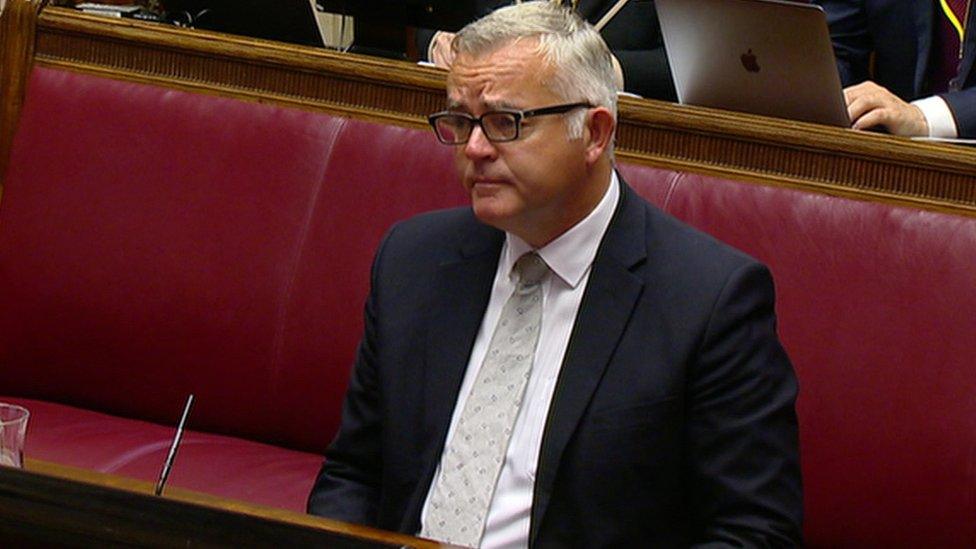
- Published5 September 2018
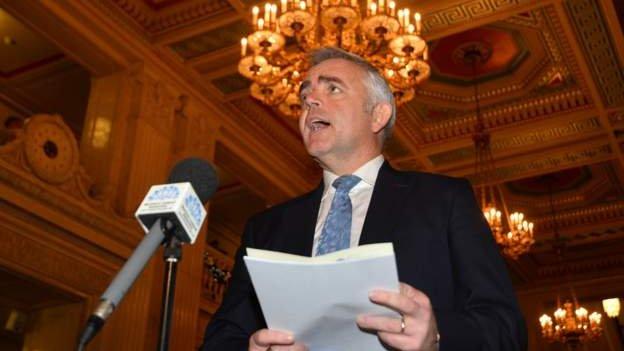
- Published5 September 2018
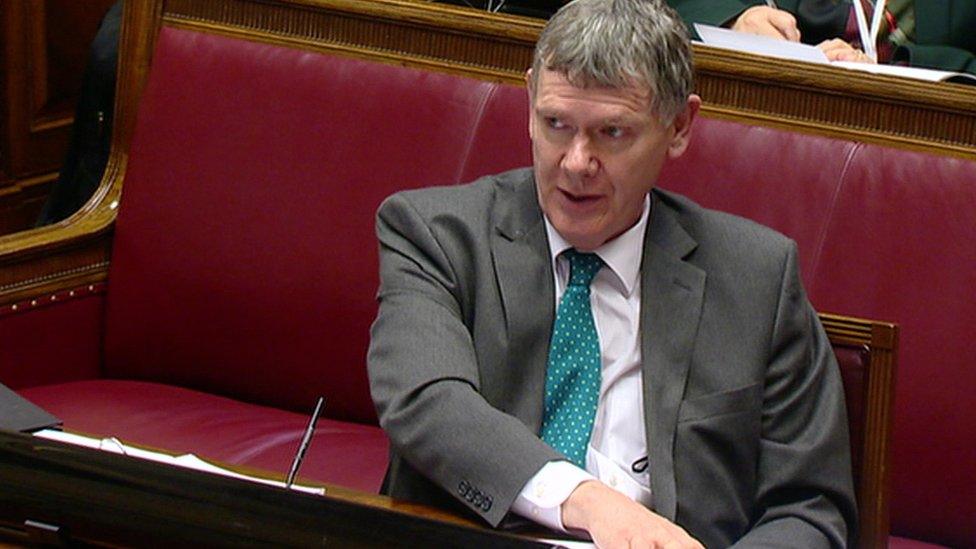
- Published5 September 2018
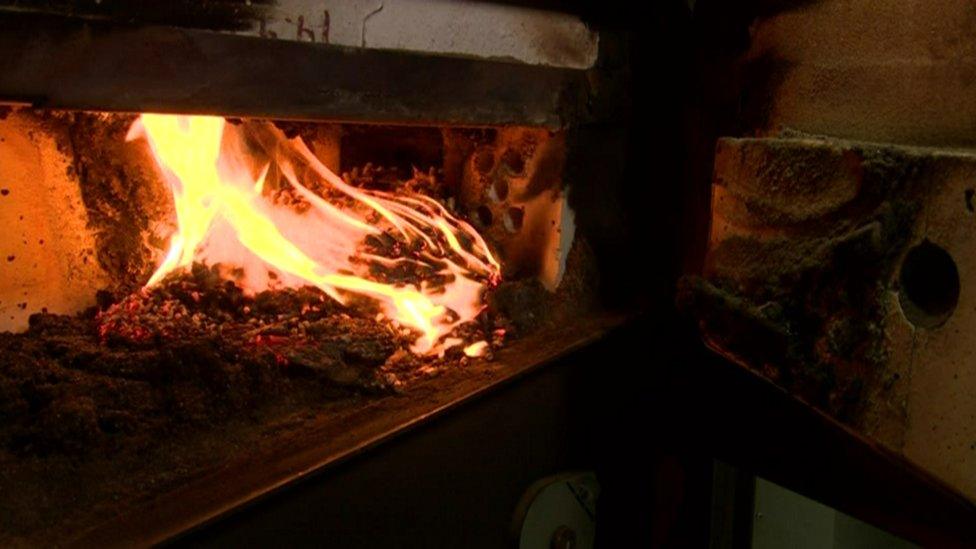
- Published13 March 2020
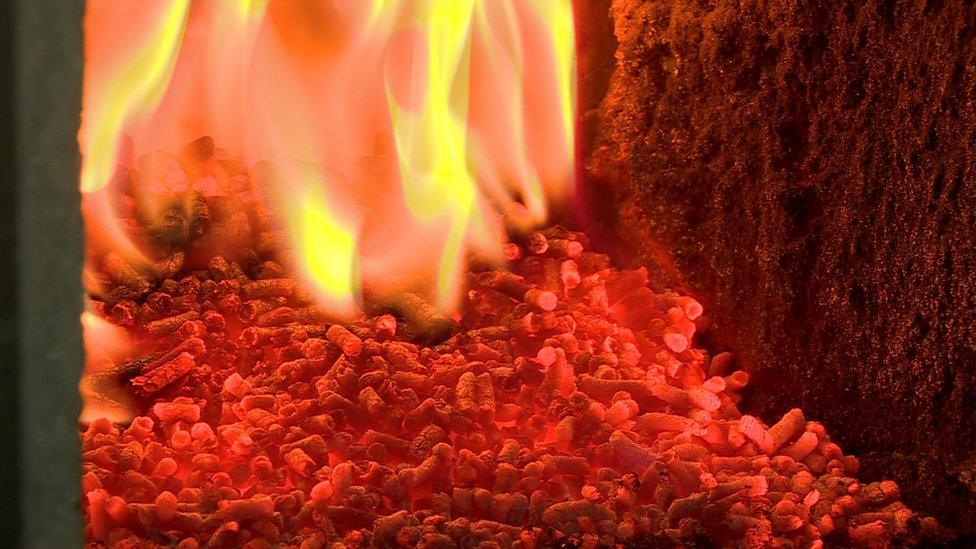
- Published4 September 2018
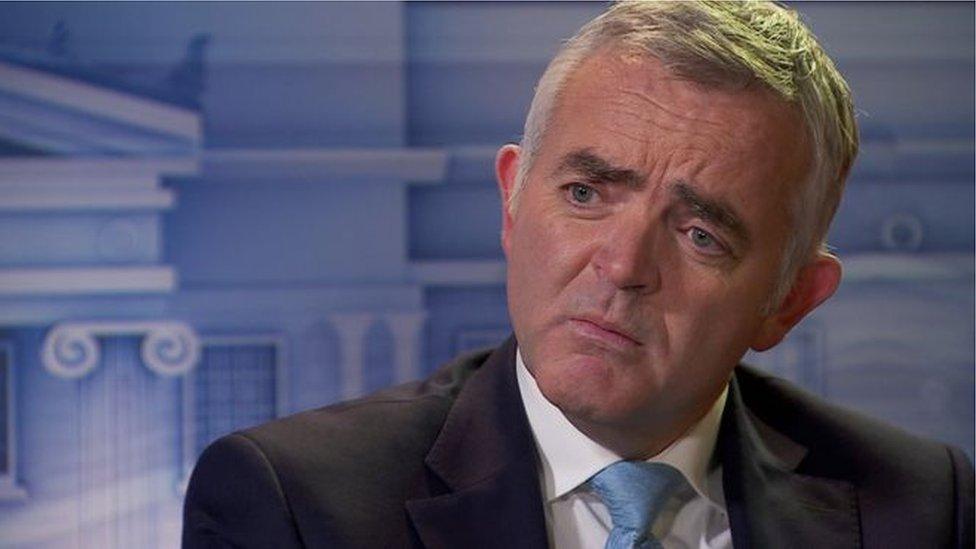
- Published17 April 2018
